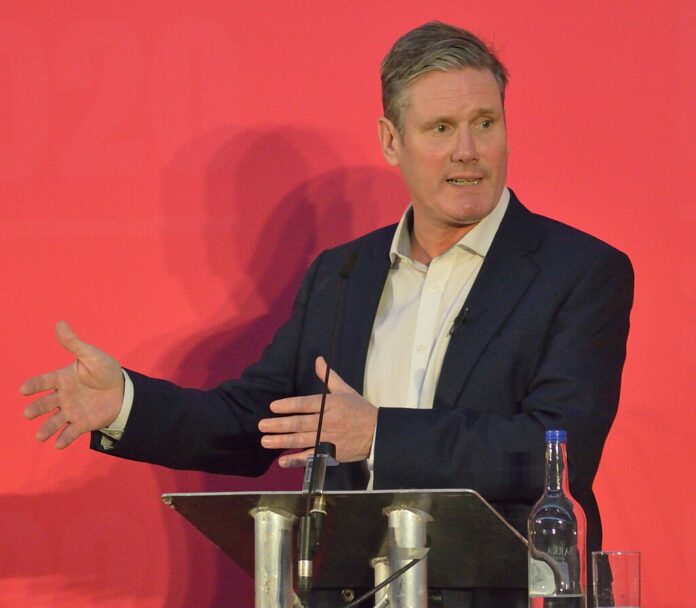The new regulations, aimed at curbing childhood obesity, will also extend to a total ban on paid online junk food adverts
The UK government has confirmed that a ban on junk food advertisements on television before 21:00 will come into effect on 1 October 2025. This new regulation, announced by Health Minister Andrew Gwynne, is part of a broader initiative to address childhood obesity and improve public health.
The ban was originally a commitment by the previous Conservative government under Boris Johnson in 2021. However, the implementation was postponed to allow businesses more time to adapt. Now, the Labour government has picked up the initiative, promising to enforce the restrictions without further delay.
The ban will prohibit advertisements for foods deemed “less healthy,” including those high in fat, salt, or sugar, from being broadcast before the watershed hour. This move aims to reduce children’s exposure to unhealthy food marketing, which research shows can influence their dietary choices from a young age.
Embed from Getty ImagesIn addition to the TV advertising restrictions, Labour has also pledged to introduce a comprehensive ban on paid-for online adverts for junk food. This dual approach is intended to tackle childhood obesity from multiple angles, acknowledging the growing influence of digital media on young audiences.
Andrew Gwynne emphasized that these measures are designed to “tackle the problem head on,” providing clarity for businesses affected by the new rules. The government has also released detailed guidelines following a 2022 consultation, defining what constitutes a “less healthy” product and specifying exemptions for items such as baby formula and medicinal drinks.
The Royal Society for Public Health (RSPH) has welcomed the ban, describing it as a significant step toward reducing childhood obesity. Simon Dixon, head of policy and public affairs at the RSPH, highlighted that improving childhood nutrition is crucial for building a healthier future generation.
The government’s announcement also includes plans for a targeted consultation to address how the restrictions will apply to Internet Protocol Television (IPTV), which streams TV content over the internet. This additional consultation aims to clarify the scope of the restrictions and ensure they are effectively implemented across various platforms.
The new regulations come as part of a wider reform agenda led by Prime Minister Sir Keir Starmer, who has promised significant changes to the NHS. Among his plans are efforts to transition to a digital NHS, shift more care from hospitals to community settings, and focus on preventive measures to ease the strain on healthcare services.
Gwynne stressed that addressing childhood obesity is essential not only for improving health outcomes but also for reducing future pressures on the NHS. Currently, more than 20% of children in England are overweight or obese by the time they start primary school, a figure that rises to over 33% by the end of primary school.
Analysis:
Political: The upcoming ban on junk food ads reflects a broader political commitment to public health and child welfare. Labour’s enforcement of this policy underscores their focus on health-related issues, contrasting with previous government approaches that delayed the implementation. This move aligns with the broader agenda of reforming the NHS and addressing long-term health challenges, positioning the current government as proactive in tackling childhood obesity.
Social: The ban on pre-watershed junk food advertising highlights the increasing concern over children’s health and the impact of media on dietary choices. Socially, it reflects a growing awareness of the need to protect young audiences from aggressive marketing tactics that promote unhealthy eating habits. The measure aligns with societal trends toward healthier living and increased regulation of potentially harmful industries.
Racial: While the ban does not directly address racial issues, its implications for public health can impact various demographic groups differently. Childhood obesity rates often vary by socioeconomic status, which can intersect with racial disparities. By targeting advertising practices, the policy may contribute to reducing health inequalities and improving outcomes across diverse communities.
Gender: The focus of the ban on children’s health is inclusive of all genders, though it acknowledges that children in general are highly influenced by advertising. Gender dynamics may play a role in how dietary preferences are formed and influenced, but the primary aim of the ban is to provide equal protection for all children regardless of gender, aiming to foster healthier eating habits universally.
Economic: The implementation of the ban on junk food advertising will have economic implications for the advertising and food industries. Companies will need to adjust their marketing strategies and budgets to comply with the new regulations. The ban also highlights the intersection of public health and economic policy, as reducing childhood obesity can potentially lower future healthcare costs and improve overall economic productivity by fostering a healthier population.
